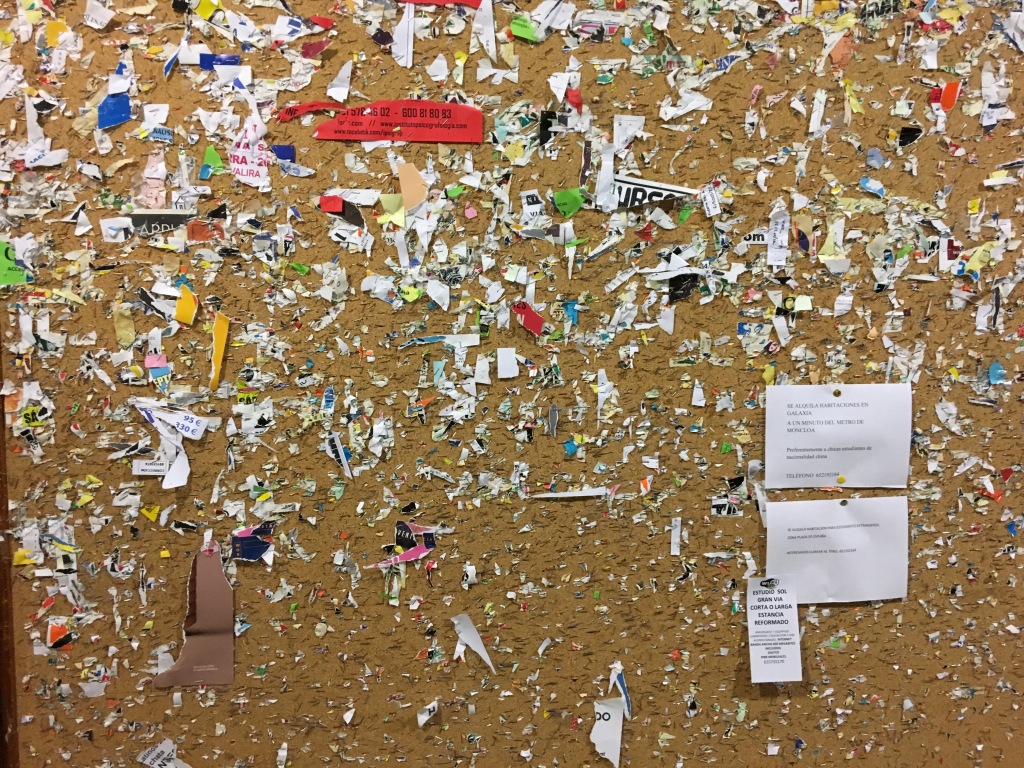The following notes are merely a series of thoughts without any particular order but that later (hopefully) could be part of my dissertation project (a very [till today] basic and naive ideas about accumulation as a general movement of history and specially modernity)
———
Accumulation(s) I
In a way, our times could be described as a series of seriated and seriating accumulations. This, of course, not only testifies for capitalism’s endeavour but also for the way the climate catastrophe has heaped in the horizon of history as our further extinction. Yet, to accumulate does not necessarily means to horde valuable items neither to just let catastrophes pile in the horizon of the coming future. In fact, accumulations are closer to disorganized heaps, piles or bodies amassed (and therefore, somewhat to a weird idea of ecology, meaning that even the smallest tossed or dispensed body, would heap somewhere and eventually return to the place where it was thrown away). Etymologically (if this helps to clarify where I’m going), to accumulate is a verb whose first appearance was in the early XIV (1520) century and is composed by two particles, the preposition “ad” (to) and the substantive “cumulus” (a heap). Hence, in the early years of that period commonly called modernity, at the babbling of what centuries later would become a world ordered for capital through capitalism, a direction was forged, and bodies were constantly directed and redirected to it.
The coincidence between the origins of the word accumulation and the early period (if not the dawn) of modernity signal that history, somehow, could be understood as a way of directing “cumulus” (heaps). It is not only after the works of Ricardo, Adam Smith and later Marx, that accumulation becomes a direction of wealth, for the first and second, and later, for the third, a production of that “ad” that directs the cumulus. When Marx famously described how the whole economic process worked, with the analysis of commodification, fetishization (another word —as accumulation— that was firstly coined in the context of slave trading in the XV-XVI century), capital circulation, value and surplus value, he still found necessary to unveil what started everything. For Marx, it is not that capital is merely understood as a machine, but as something that is triggered, something that needs to be started. Irremediably when understanding the process of accumulation(s) of capital, as Marx puts it, we “turn in a defective circle, out of which we only get by supposing an “original” [primitive]”, an “accumulation that is not the result of capitalistic mode of production, but its starting point”. That starting point, for Marx, “plays in Political Economy the same role that plays the “original sin in theology”. The result of this ironic comparison (and maybe not so ironic) is the famous formulation of the process of “so-called” primitive accumulation: that is the demystifying of an idyllic process of enrichment. From this perspective, the “so-called” primitive accumulation is the systematic repetition of violence, land dispossession, forced migration, law prosecution and bloody legislations necessary to produce an ambivalent subject that both surrenders to the “ad” of accumulation while also seeks for its “cumulation” in a line of flight: the vogelfrei.
If the process of “so-called” primitive accumulation is needed at every stage of capitalism, where would the “ad” this time be produced when there won’t be no earth to live? Would it be that at best the feverish science fiction fantasies finally have been conquered (as depicted in movies like Ad Astra [after all, another movie about the possibility of starting a new process of accumulation in space)? As much as these questions are necessary, perhaps it should also be thought the possibility of an accumulation without “ad”, or an accumulation without “ad” or “cumulus” but another form of piling. Even more, perhaps that’s the only cynical comfort we have, that of which today accumulation is collapsing, and we are just hoarding history, as new vogelfrei we are tied to our impossibility towards the future and yet with the possibility of take off in a line of flight.

